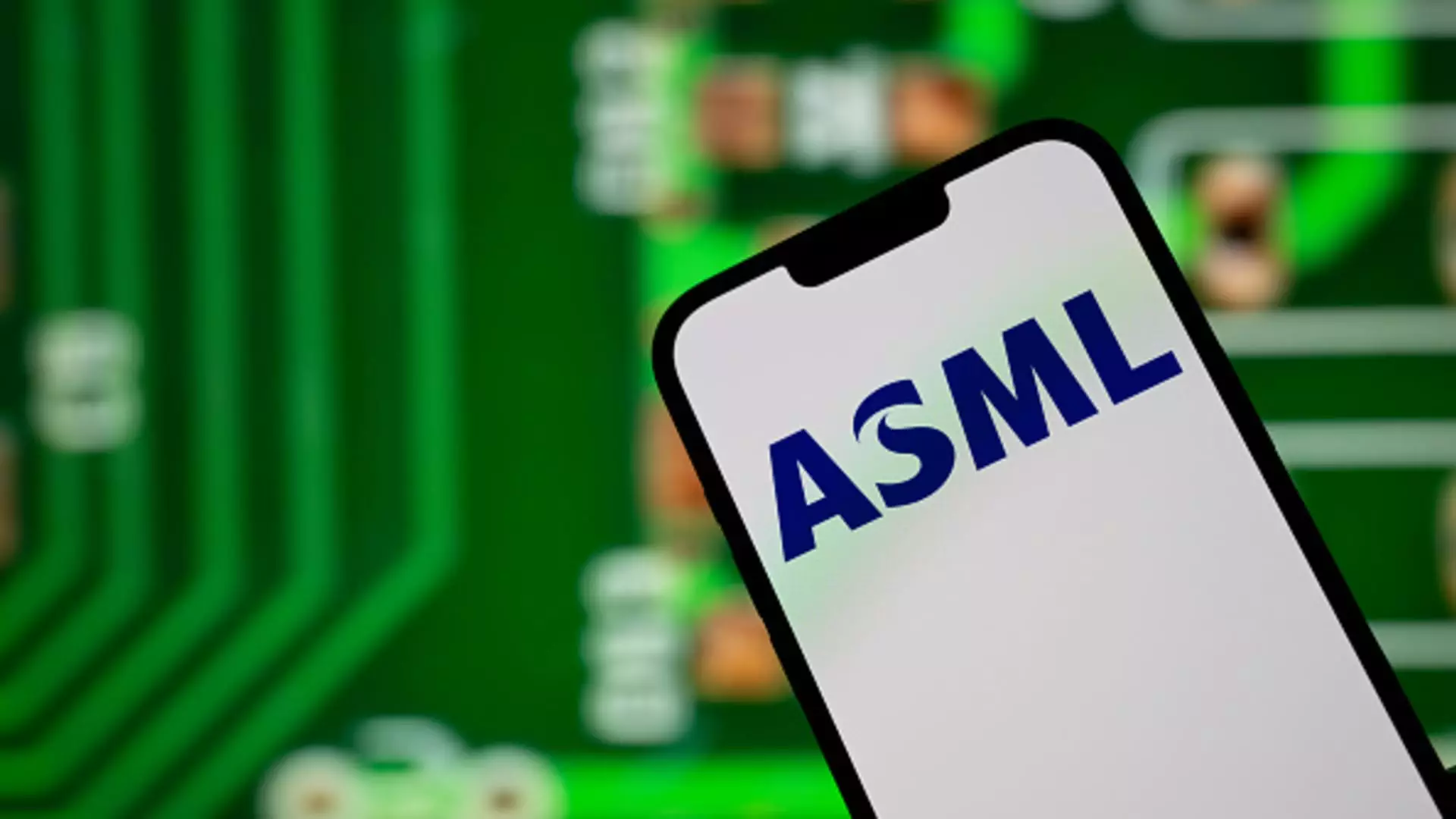ASML, the Dutch powerhouse known for its critical semiconductor equipment, has reported a significant shortfall in net bookings for early 2025, ringing alarm bells across the semiconductor industry. The company’s net bookings totaled only €3.94 billion ($4.47 billion)—a staggering mismatch against a projected €4.89 billion. This discrepancy not only reflects ASML’s current operational challenges but raises broader questions about the health of the semiconductor market itself.
The figures paint a picture of a persistent struggle. While ASML’s net sales of €7.74 billion were only slightly below the expected €7.8 billion and net profit came in at €2.36 billion against an anticipated €2.3 billion, the overall bookings suggest a cooling demand phase. ASML’s CEO, Christophe Fouquet, attributes this performance partly to “uncertainty with some of our customers,” which could impact forecasts and lead the company to navigate towards the lower bounds of its yearly revenue guidance. With projected revenues for 2025 ranging between €30 billion to €35 billion, the weight of this uncertainty is compounded by external macroeconomic influences.
The Influence of AI and Tariffs
Fouquet emphasizes that the demand outlook remains robust, predominantly fueled by advancements in artificial intelligence. However, the presence of external factors such as tariffs adds layers of complexity, which could significantly disrupt market dynamics. President Donald Trump’s tariffs, particularly on technology imports, have already made their mark, igniting concerns regarding the intricate semiconductor supply chain vital for various electronic devices.
The impact of these tariffs is double-edged—while certain products like smartphones and computers were temporarily exempt, the lingering threat creates a climate of fear and hesitance among stakeholders. The uncertainty can deter investment and slow down innovative advancements, which are vital for sustaining growth in the competitive semiconductor field. This context places ASML at a crossroads, forcing it to refine its approach to market demands while maintaining robust production capabilities.
Global Chip Stocks and Market Sentiment
The recent lethargy in global chip stocks catalyzed by fluctuations in the market sentiment has raised eyebrows. Concerns about how U.S. tariff policies could reshape the semiconductor landscape manifest not just in ASML’s performance but resonate through the stocks of other industry players as well. Investors are expressing caution, indicating a broader unease about the trajectory of technological advancements and supply chain resilience.
ASML’s trajectory is emblematic of a wider narrative in the semiconductor sector, where companies must navigate geopolitical pressures while continuing to innovate. The focus on artificial intelligence as a primary growth engine is encouraging, yet the company’s reliance on stable and predictable market conditions is under threat, signaling the need for strategic adaptation.
In navigating this complex environment, ASML and other semiconductor companies must not only address immediate operational challenges but also anticipate future market shifts, especially as global demand fluctuates. Embracing flexibility in strategy, fostering strong customer relationships, and forecasting market trends could position ASML to emerge stronger amidst the current turbulence.

